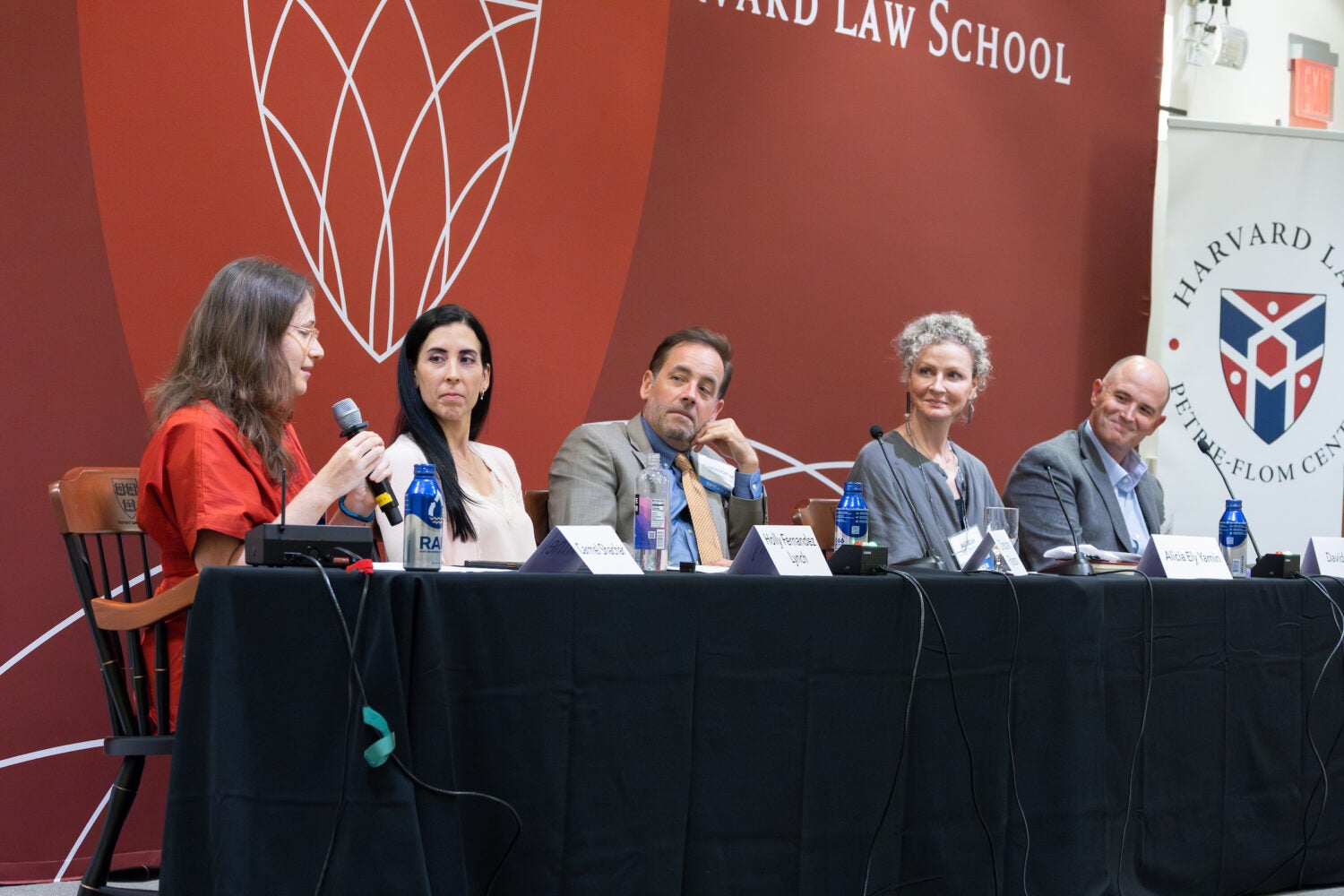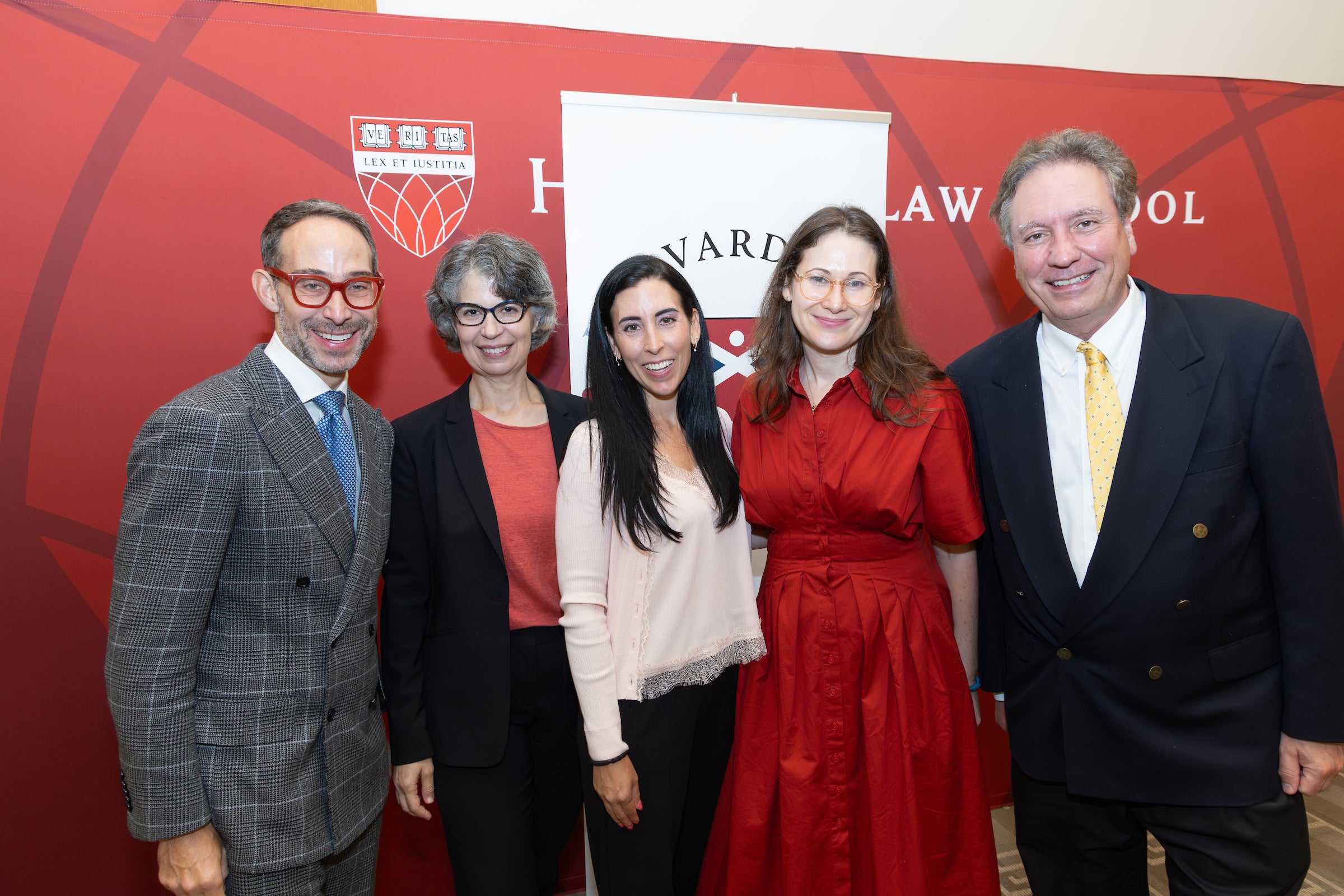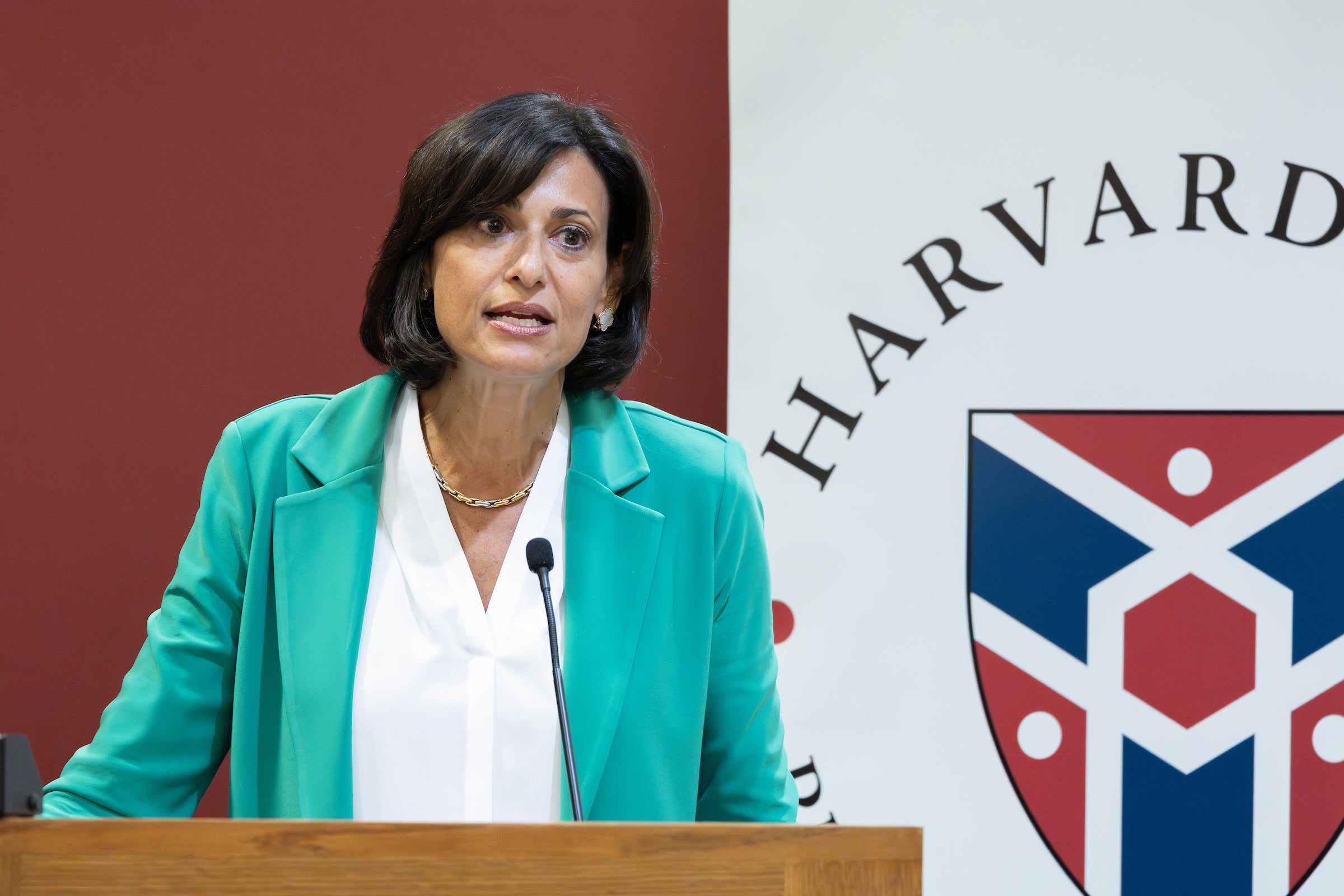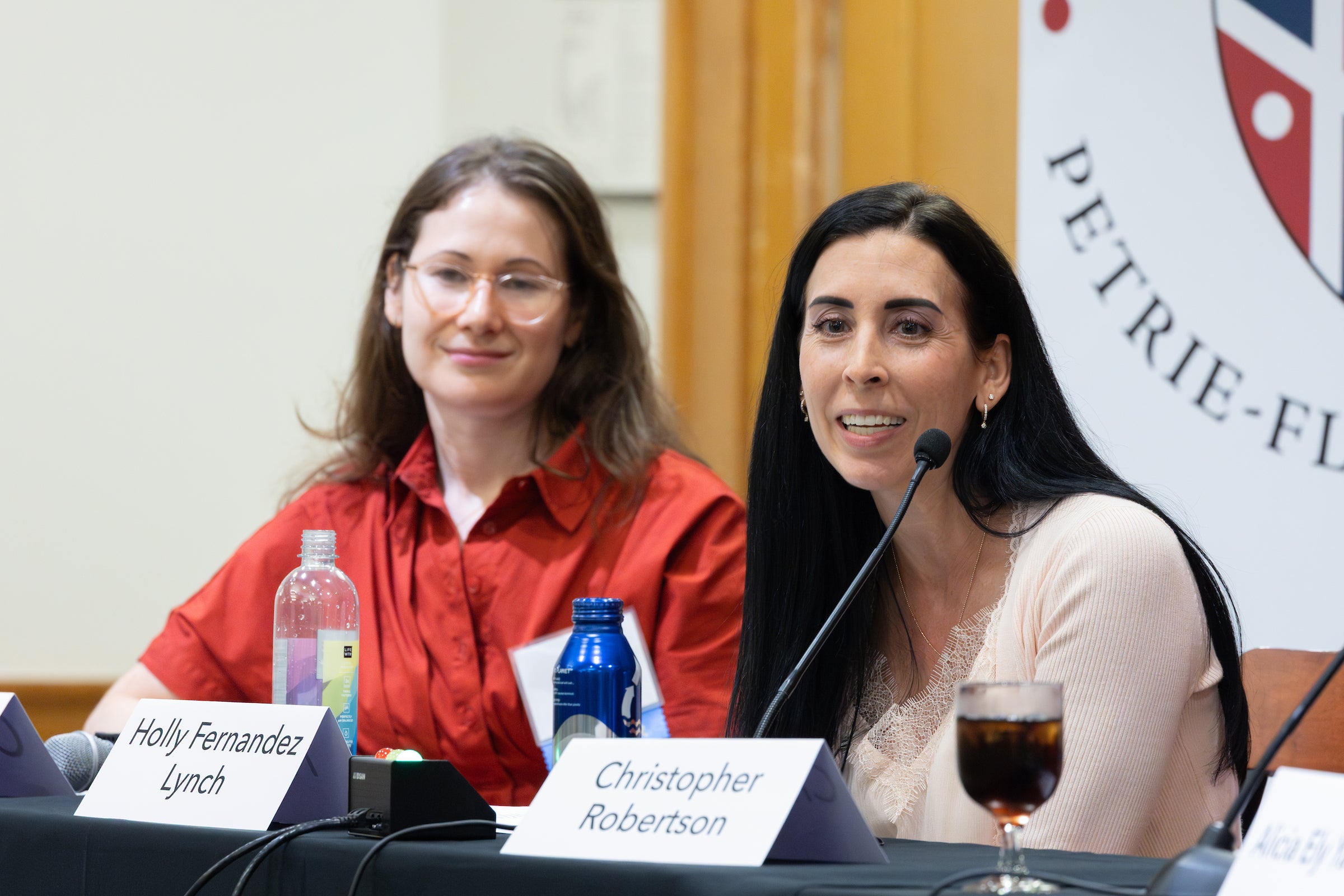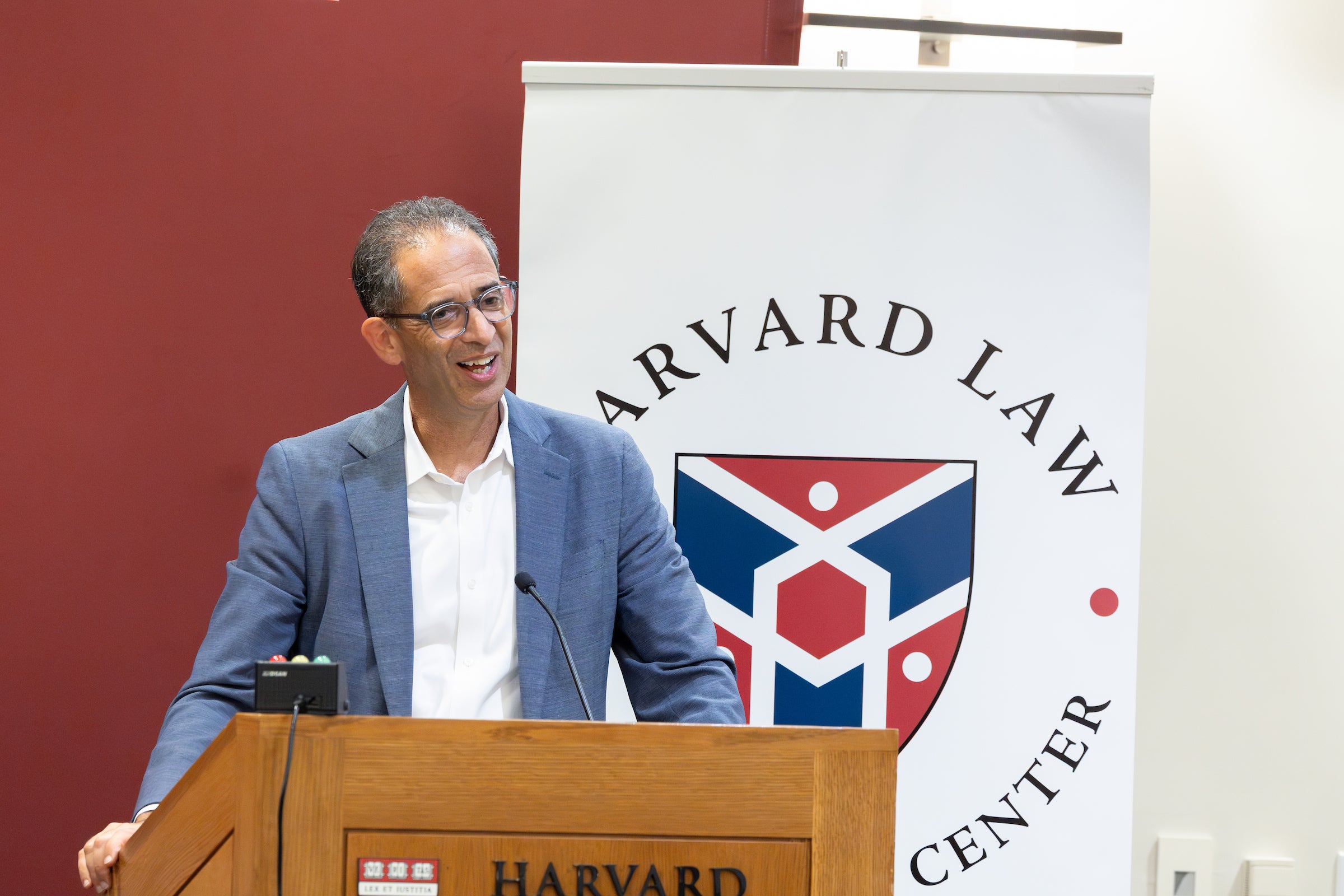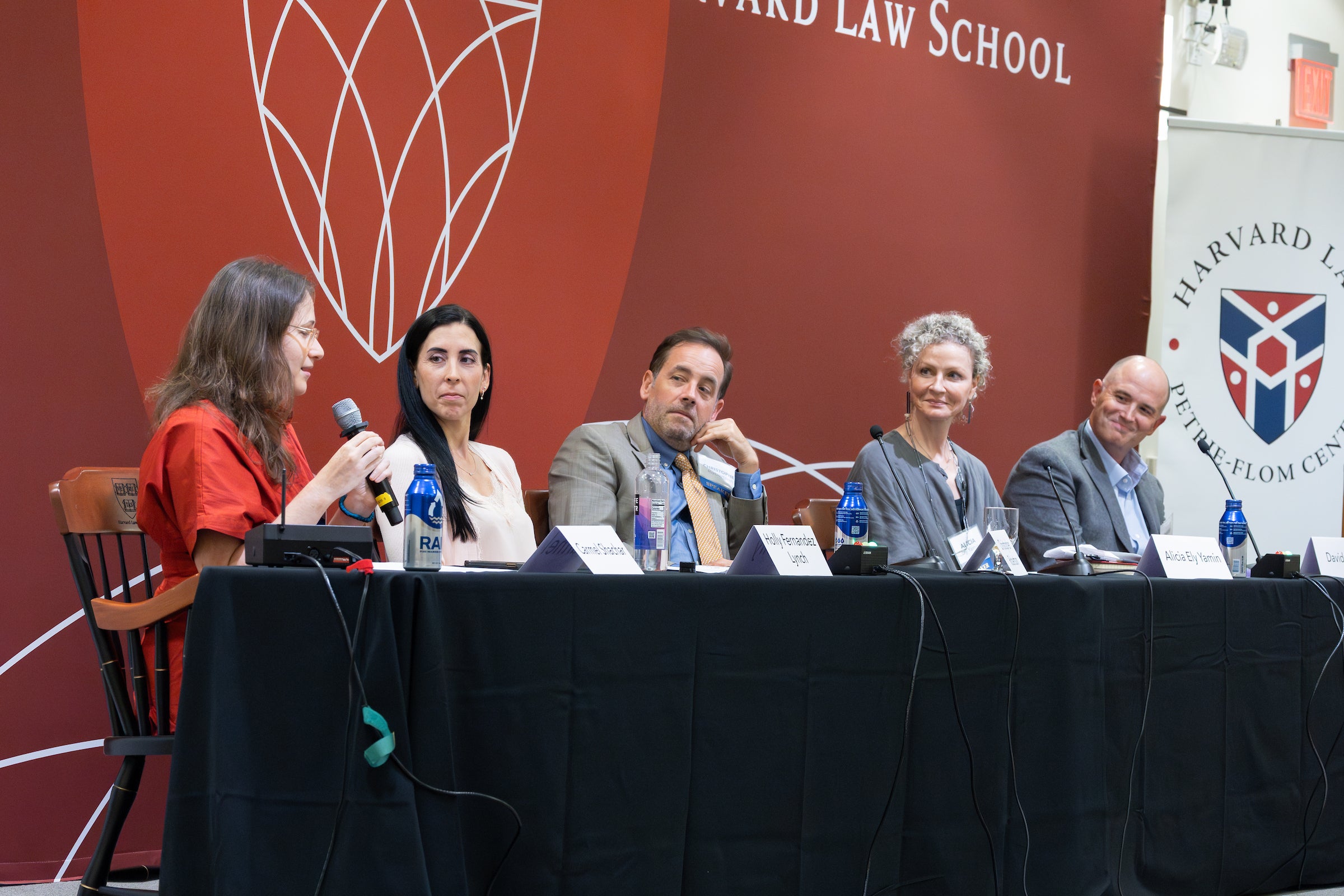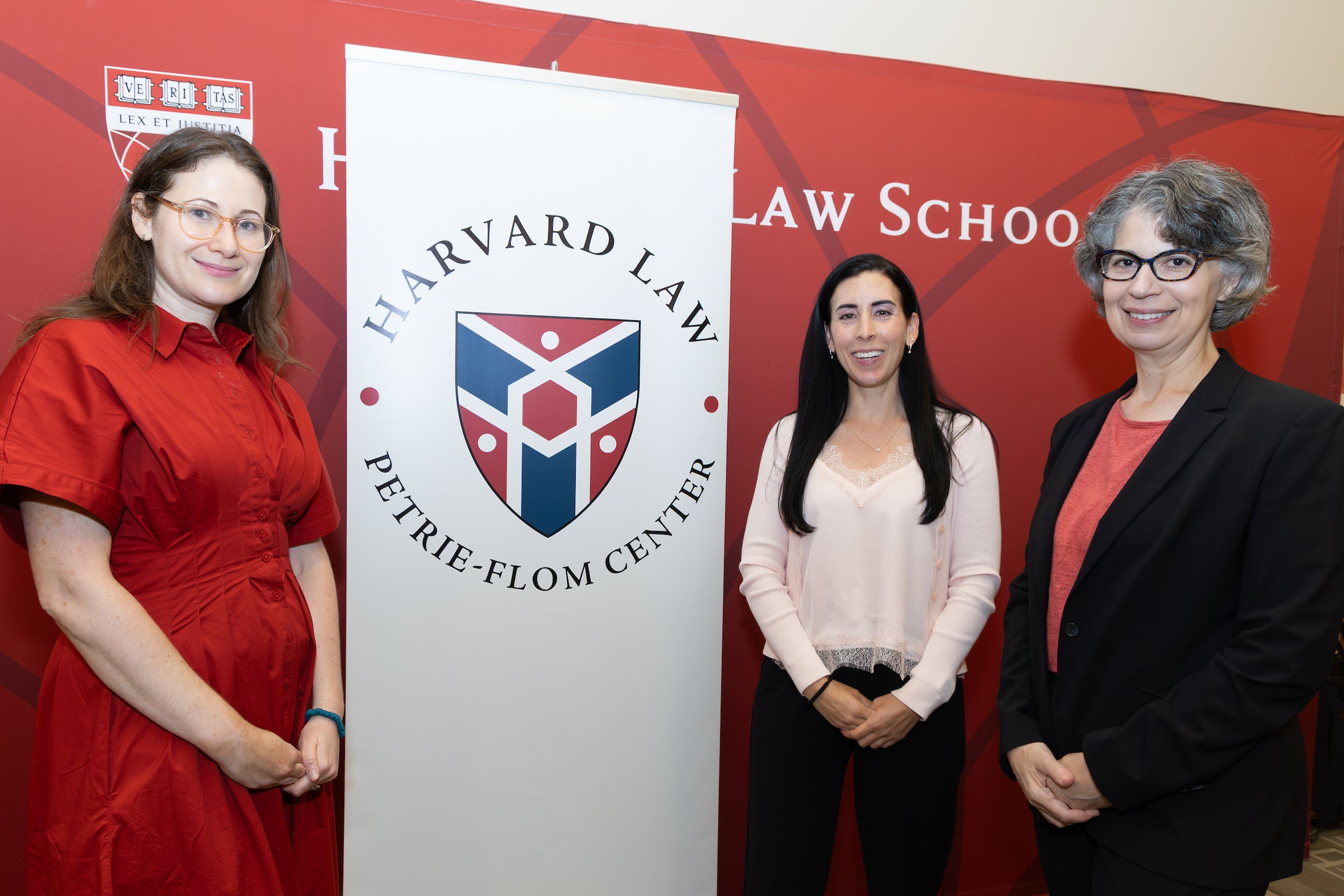The years ahead may prove perilous for public health, warn health and legal experts at the Petrie-Flom Center.
An anniversary event, PFC@20, on Sept. 11 included reflections from Faculty Director I. Glenn Cohen ’03 on the center’s two decades of health and legal research. But the day’s keynote talks and panel discussion focused mainly on the challenges ahead.
“We’re in a moment when public health, like so many things, is in crisis,” said Samuel R. Bagenstos ’93, professor of law at the University of Michigan and former general counsel of the U.S. Department of Health and Human Services.
“Over a series of decades, we in the United States built a set of public health institutions and public health practices that were the envy of the world, that had dramatically positive effects on human health.” The goal of improving public health, he said, was democratically agreed upon. Legal statutes, including the Public Health Service Act, were put into place to ensure a strong, independent health infrastructure, but “[n]ow that edifice is crashing down all around us.”
The current federal administration, he said, has “throttled knowledge generation in this country and knowledge generation institutions” by targeting research institutions including Harvard, Brown and UCLA, by overriding the peer-review process, and by removing health information from the internet.
“It has displaced the science-based process that has been set forth in statute and in pre-existing administrative procedures and replaced it instead with a process based on the very particular, very idiosyncratic views of the particular secretary of Health and Human Services. This includes the purge of the advisory committee on immunization practices, and the move to antivaccine approaches.”
Even the recent Supreme Court ruling in Kennedy v. Braidwood Management, Inc., which upheld the constitutionality of the Affordable Care Act’s preventive services mandates, was worrisome, he said, because the decision effectively gave the secretary of Health and Human Services unchecked power to hire and fire members of the U.S. Preventive Service Task Force.
This, Bagenstos said, is “a bonkers reading of the statute … but it makes sense if you have an overriding constitutional principle that everyone who works within the executive branch has to answer to the whims of the people in charge.”
Former Petrie-Flom senior fellow Rochelle Walensky headed the federal Centers for Disease Control and Prevention during dark periods of the COVID-19 pandemic between 2021 and 2023. Yet she said that “Our times now are much more concerning than a simple lack of political and financial support for public health.”
She named three examples that “keep me up at night”: potential pandemics involving syphilis, avian flu, and measles. Each, she said, has resurfaced as a broader public health concern in recent years. Last year there were 266 pediatric deaths from influenza, the most in 15 years, and syphilis rates are at their highest since the1960s. Measles made a dramatic reappearance with a California outbreak in 2014. She said her clinicians never see measles, “but they can expect to see it in the future.”
In addition, vaccination rates are declining, which she said is a dangerous trend being encouraged by administration policies.
“HHS leadership is inching toward a complete vaccine takedown, incrementally chiseling away at our previously trusted systems,” she said, citing restrictions of COVID-19 vaccine access, withdrawal of $500 million for mRNA research, the firing of CDC director Susan Monarez, and the replacement of the 17 members of the Advisory Committee on Immunization Practices with a panel of vaccine skeptics.
“I reminisce about those quaint days when lack of support for public health was our biggest problem, when we worried about the pandemics of tomorrow,” she said. “Now I fear because we actually have to worry about the pandemics of yesterday.”
Daniel Meron ’92 addressed a particular problem in national health care policy, the division between enforcement and policy functions within the federal government. The primary federal healthcare agency is the Center for Medicare and Medicaid Services, yet it largely regulates payment decisions rather than treatment or access to medicines.
Likewise, the Food and Drug Administration has the authority to approve or withdraw drugs from the market, but not to regulate their use.
Meanwhile, he said, policy sometimes is being driven by federal organizations that are not health care agencies, including the Department of Justice. “Even when it comes to national policy, with respect to the availability of life sciences products,” he said, “the federal government’s ability to form a single coherent national policy is more limited than typically acknowledged.”
During a roundtable discussion on “The Past, Present and Future of the Field,” participants recalled their own times with the Petrie-Flom Center and related its mission to current public health challenges.
“The administration not only has upended the public health infrastructure in this country, but … they’ve also upended the global order and global governance for health,” said Alicia Ely Yamin ’91, director of the center’s Global Health and Rights Project. She is now working on an interfaculty group, through the Harvard Global Health Institute and Petrie-Flom, that is “leading to much more in-depth work … re-imagining global health governance in ways that address some of the structural problems that existed before this administration took power, as well as the total debacle that has been created.”
Mining some hope for the future, former Petrie-Flom executive director Carmel Shachar equated the Affordable Care Act to a vintage car.
“It’s had some tune-ups, but maybe because of COVID we missed the natural point where we would have written the next chapter in health care reform. So, I think a lot in my work [is] about how we react not just to what’s happening now, but how we answer that question of what is the next chapter. And I’m only able to do that because of the amazing work of Petrie-Flom.”
In his opening remarks, Cohen reflected on the center’s two decades of work. The center “takes as its mission the goal of supporting and building the field of health law, scholarship and practice at Harvard Law School, but also around the world,” he said. “We’re proud of our major contributions in scholarship, conferences, books, convening, fellowships.”
He cited some ambitious current projects, including research on artificial intelligence in medicine, legal and ethical issues related to psychedelics, brain and body aging, and applied neuroscience to improve advanced care for serious illness.
Want to stay up to date with Harvard Law Today? Sign up for our weekly newsletter.
